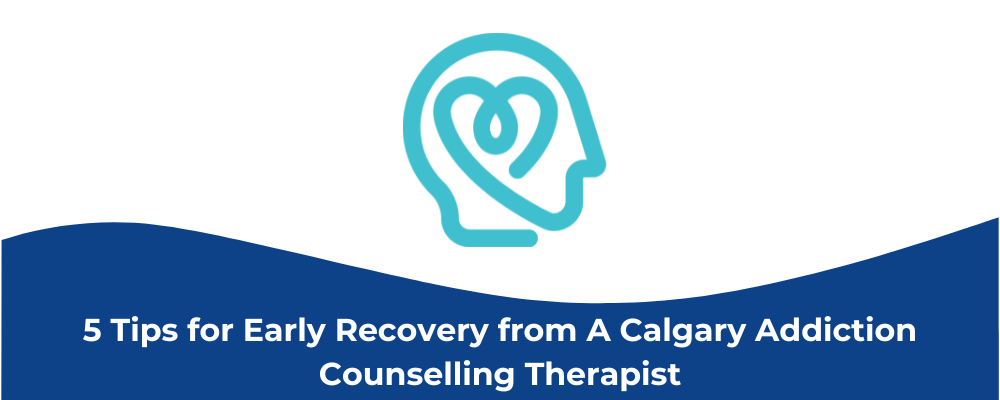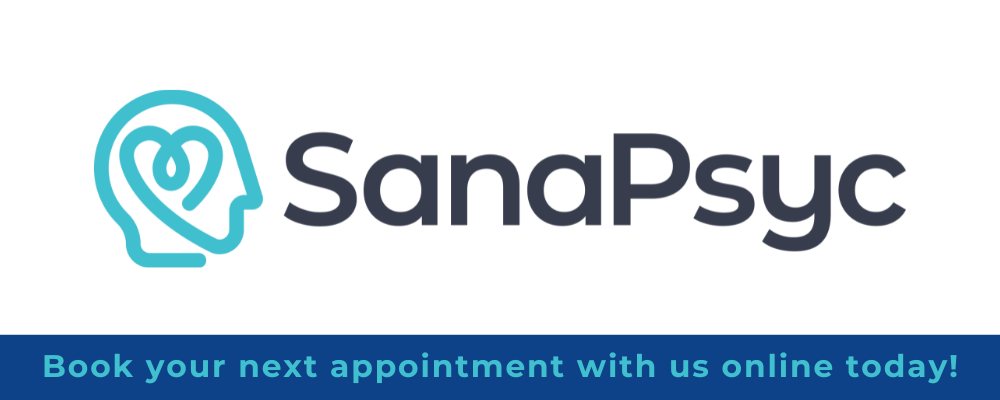
Moving from regular use of a substance, like drugs or alcohol, or a behaviour, like overspending, overeating, working too much, compulsive exercise, gambling, or hypersexuality, is no easy feat and takes tremendous courage, strength and, let’s face it, desperation. Often people are forced to make changes through life consequences and circumstances that have become unmanageable. This does not the change the fact that great effort is required to move from Point A to Point B and kudos to you for the work that you are, will be, or have done to improve your life.
What We See as The Biggest Challenges of Early Recovery in Calgary Addiction Counselling
The early days of recovery are incredibly challenging, as we see daily while providing Calgary Addiction Counselling services. People are in withdrawal/post-acute withdrawal and navigating uncomfortable physical, emotional, and psychological symptoms. These can range from nausea, stomach upset, shakes, seizures, headaches, and cravings to irritability, depression, anxiety, hopelessness, shame, and low motivation. Many people think that physical withdrawal symptoms are only present when detoxing from a substance like drugs or alcohol but this is not true; our Calgary Addiction Counselling therapists have seen people experience very similar physical withdrawal symptoms (and usually even worse emotional and psychological withdrawal symptoms) when detoxing from relationships, sexual acting out, gambling, workaholism, nicotine, caffeine, and eating disorder behaviour.
Withdrawal Symptoms
These uncomfortable withdrawal symptoms make the early days of recovery (which we will define as the first 3 months of sobriety) extremely difficult. Due to the discomfort that people are in, the risk of relapse is incredibly high. People have not yet experienced the benefits of their new sober lifestyle and are experiencing immense discomfort- it is nothing short of a miracle when people make it through this time into longer-term recovery.
Lack of Support/Recovery Hostility
Another big challenge facing people in the early days of recovery is that the sudden changes they are aiming to make may not always be welcomed and supported by those around them. While you would think that a person’s support network would be thrilled that they are looking to improve their health and wellbeing, in reality there can be recovery antagonism as people feel threatened, uncomfortable, and overwhelmed by the changes. This is one reason that we see a number of people turn to addiction counselling and the formal support of a therapist who can hold them accountable and be supportive of the transformation that is underway.
Lack of Resources
Another huge challenge is that not everyone has access to Calgary Addiction Counselling resources as our tiered system means there are either fees for service that people may not be able to afford and long waits for more accessible services that may provide insufficient quality of care. Many people who are struggling with addiction issues navigate recovery on their own. This isn’t a bad thing, it’s just unfortunate for those who are looking for Calgary Addiction Counselling but cannot gain access.
For those who are pursuing recovery and are looking for some tips and support from an experienced Calgary Addiction Counselling therapist, here are our top 5 words of wisdom for navigating this important time.
Top 5 Strategies for Early Recovery from a Calgary Addiction Counselling Therapist
1. Build a support network-quickly. Early recovery is an urgent and important phase. Cravings and addictive thinking are high; therefore, taking time to build a plan and implement action strategies can cost you valuable time that the addictive brain can sneak back into. This can lead to relapse and a delay in getting back into recovery. With all of the clients we have met with who are successful in finding long-term recovery for themselves, it always comes down to SUPPORT. Our Calgary Addiction Counselling therapists hear often about how important those 1-3 key people were in bridging the gap from active addiction to sobriety. That’s right, it doesn’t have to be a large number of people but ideally some kind of health professional (a doctor, addiction counsellor, etc.), another sober person (or a few) to share about your struggles and challenges with, and perhaps a person or two from your existing network (family member, friend, etc.). Remember that your support people are not always who you anticipated they would be; sometimes those that we think will be there can’t for their own personal reasons. Do not let this deter you, persist in your recovery and find your people.
2. Learn what your brain is doing. Learning about how the brain with addiction operates is very important in helping you identify symptoms and navigate the cognitive tricks and traps that will be thrown out by your reward circuitry. For some suggestions of free resources, visit our website here to learn more. Our Calgary Addiction Counsellors have found that education about how the reward circuitry operates, how it is impacted by addiction, and what will happen as changes to behaviour are made are incredibly impactful in allowing people to navigate cravings in the early days of recovery. While it doesn’t make cravings stop, it helps them become predictable and manageable. Here is a great resource on How An Addicted Brain Works.
3. Develop a structured routine. Gone are the days (for now) of doing what you want, when you want. Early recovery requires a structured routine and plan in order to support you as you navigate withdrawal symptoms and cravings. This routine is ideally comprised of physical coping actions, ways to deal with stress and keep it low, engagement with other people, rest, fun, and a spiritual component (whether that be time in nature, meditation, yoga, prayer, religion, time with people, or whatever that means for you). This is sometimes referred to as Recovery Capital and is all about the resources that you can create and rally to support yourself. Here is a guideline to creating a successful recovery plan that you can do on your own or with the help of Calgary Addiction Counselling. Recovery will become more organic and flexible over time but the early days require structure.
4. Be clear on your intentions and goals. Being wishy-washy about what you intend for your recovery journey can lead to disaster. Our Calgary Addiction Counselling therapists meet with people often who are somewhat ambivalent-they recognize life isn’t great but are not committed to what they want and need to do moving forward. These people tend to keep struggling. It is only when intentions are clear that recovery can begin. This may mean an intention for abstinence with alcohol, harm reduction, stopping nicotine before pursuing abstinence in another area, etc. The choices are endless and up to the individual. There is no right path for recovery, but whatever your starting point is needs to be clarified. A lack of intention will lead to a lack of change.
5. Remember to include healthy fun. In the early days of recovery, the brain may be in a state of anhedonia, which basically means that a person does not feel pleasure or fun from activities they used to. Our Calgary Addiction Counselling therapists know it is a tough ask to do things that are supposed to be fun but don’t feel it, but this is how we slowly support our brain in changing. Over time, the pleasure threshold in the brain rebalances and people are able to feel a sense of enjoyment from things that addiction robbed from them. This does take time, though. Rather than waiting for this change to spontaneously occur (which it won’t), take action. Do things that you know are good for you even if they feel flat.
For those who have been in addiction counselling already and/or are in long-term recovery, these tips can be helpful throughout the recovery journey as well as if any relapses occur and if it comes to your attention that addiction is active in a different area than it was before.
The recovery journey is one of the most rewarding people can be on. As the old saying goes, “Nothing worth having comes easy.” This is about advocating for your health. Your sanity. Your life. “Recovery comes if you work it, so work it, you’re worth it.”
Paige Abbott is a Registered Psychologist and Calgary Addiction Counselling therapist at Sana Psychological. She has specialized in addiction counselling and treatment since 2011 and has the pleasure of mentoring her colleagues to enhance their expertise with addiction counselling. Appointments are available to those in Alberta, Yukon, New Brunswick and Nova Scotia at the time of appointment and can be booked here anytime.


